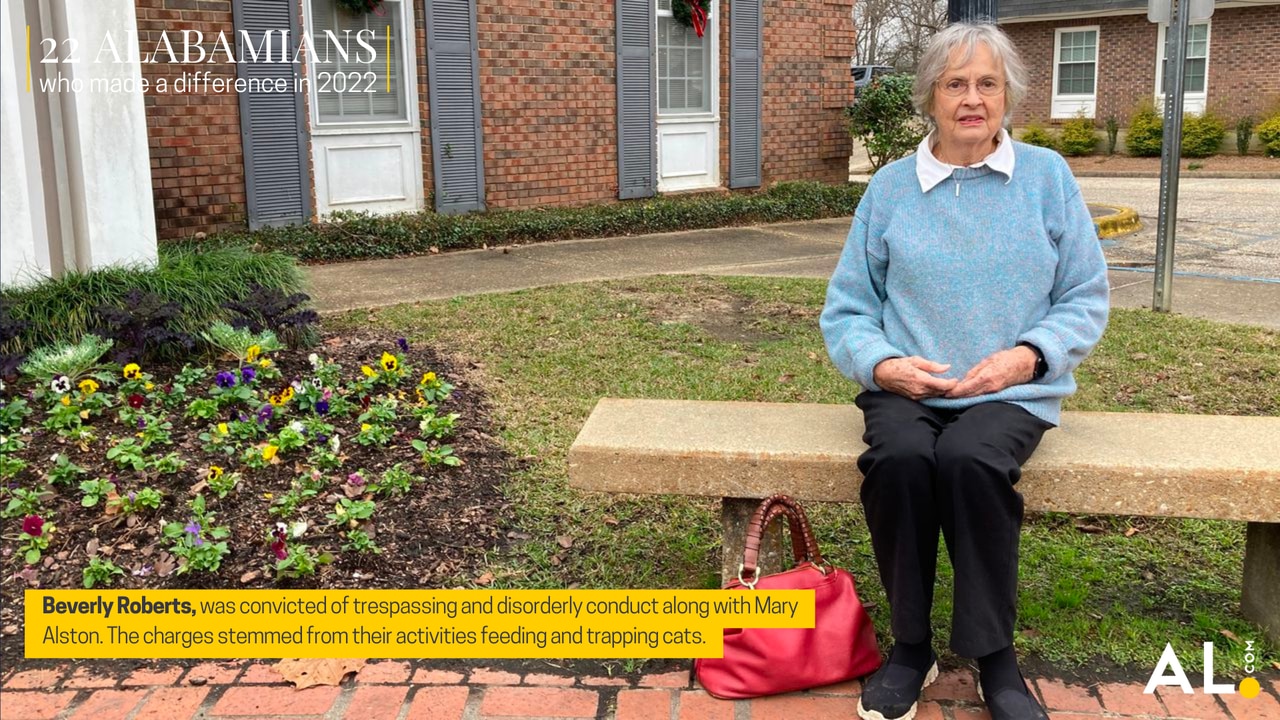‘Compassion is not a crime’: Wetumpka women guilty after feeding cats sparks outrage
This story is part of AL.com’s series “22 Alabamians who made a difference in 2022,” highlighting people who have made our state a better place to live this year. Stories in this series will publish each weekday during December. Find all stories in the series as they publish here, and read about the Alabamians who made a difference in 2021 by clicking here.
Mary Alston, 61, was parked near the river in Wetumpka on the morning of June 25 when three police cars with lights flashing pulled up behind her sedan.
Alston told the officers she was trapping cats. She had Fancy Feast in her car.
They told her to stop, but when the officers returned later, she was still there with another cat advocate, 84-year-old Beverly Roberts. Police arrested both women for criminal trespassing because they had been told not to feed cats on public property.
Those arrests caused a national stir among animal rights advocates and shone a spotlight on trap-neuter-return, a strategy embraced by many cities to reduce feral cat populations by feeding and fixing untamed felines. People watched the videos of the arrest nearly 5 million times on AL.com’s platforms alone, seeing the women being hauled from their cars and placed in handcuffs.
Elmore County officials said the cats had become a costly nuisance and that Roberts and Alston made the problem worse. However, Alston and Roberts said their efforts could have helped control the surplus cat population.
Video of the arrests of the two women drew condemnation to the small town of Wetumpka, a riverside community north of Montgomery best known for its legal hotel-casino. In the face of the outrage, city officials stood firm, bringing in an outside prosecutor and scheduling an all-day hearing on the misdemeanor charges.
Lawyers representing Alston and Roberts used the opportunity to call witnesses who are experts on the care and control of feral cats. They said many cities have successfully implemented programs that reduce cat populations by trapping, neutering and returning cats to areas where they live. Providing food can keep feral cats from roaming to other areas where they might spread disease.
One expert, Alice Burton with Alley Cat Allies, traveled to Alabama from Virginia to support the women. Burton testified that a trap-neuter-return program in Chicago reduced the feral cat population by more than half. She said Wetumpka authorities should not have punished the women for caring about cats.
“Compassion is not a crime,” Burton said. “These are good Samaritans that should be applauded and not handcuffed.”
The trial drew an audience from across the community. One woman ever wore a headband with cat ears in the courtroom to show her support.
The support had little impact on Wetumpka Municipal Judge Jeff Courtney, who found both women guilty and sentenced them to two years’ probation and small fines.
The story isn’t over yet. An attorney for Alston said they plan to appeal and seek a jury trial. We’ll probably be hearing about this cat fight well into 2023.
